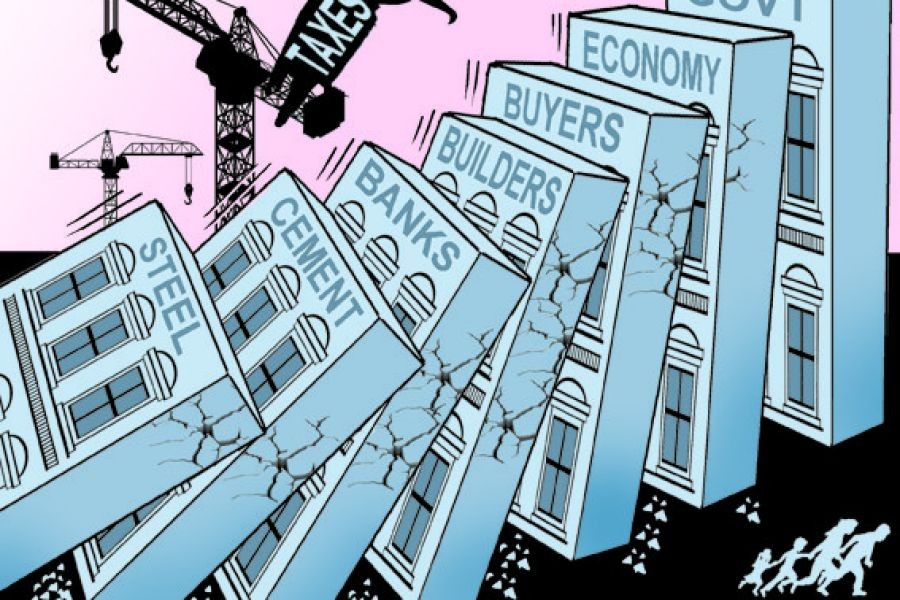Introduction
New Zealand's housing market is a battlefield, with young buyers caught in the crossfire. Recent data indicates that property prices have surged by nearly 30% over the past five years (Stats NZ, 2023), pushing the dream of homeownership further out of reach for many young Kiwis. The disparity between income growth and property price escalation is not just an economic issue—it’s a generational crisis affecting the future of young New Zealanders. This article delves deep into how the current housing market dynamics are arguably biased against younger buyers and what can be done to reverse this trend. Are we witnessing a systemic discrimination in the housing market? Let's explore.
Case Study: Auckland’s Housing Dilemma – The Young Buyer’s Struggle
Problem: Auckland, New Zealand's largest city, is a microcosm of the national housing issue. Young professionals are finding it increasingly difficult to purchase their first homes. With an average house price exceeding NZD 1 million (Real Estate Institute of NZ, 2023), the affordability gap is stark. The trend is clear: while wages have seen a modest increase of just 3% annually, property prices have skyrocketed at a much faster pace.
Action: To mitigate this challenge, some young buyers in Auckland have turned to collective ownership models, pooling resources with friends or family to enter the property market. Another strategy has been moving to satellite towns, where prices are relatively lower, and commuting to the city for work.
Result: These strategies have provided some relief. For instance, young buyers engaging in shared ownership have managed to secure properties with a 20% lower financial burden per individual compared to traditional single ownership models. Additionally, those moving to satellite towns have reported a 15% savings on property purchases, albeit with increased commuting expenses.
Takeaway: Auckland’s housing dilemma illustrates the need for innovative ownership models and urban planning strategies that can offer young buyers a fair chance in the market. For wider applicability across New Zealand, these strategies could be pivotal in reshaping the housing landscape for younger generations.
Data-Driven Analysis: New Zealand’s Economic Conundrum
According to the Reserve Bank of New Zealand, the average mortgage interest rate has inched upwards to 5.5% in 2023, driven by global economic pressures. This rate increase has compounded the financial burden on young buyers, who often lack the capital reserves required to buffer against such hikes. Furthermore, a report from the Ministry of Business, Innovation, and Employment (MBIE) highlights that construction costs in New Zealand have soared by 20% over the past three years, placing additional upward pressure on house prices.
Pros and Cons Evaluation
Pros:
- Potential for Long-Term Asset Growth: Despite high entry costs, property ownership in New Zealand has historically provided substantial returns, with average annual increases in property value exceeding 10%.
- Security and Stability: Owning a home offers stability and a hedge against rising rents, which have increased by 5% annually.
- Government Incentives: First-time home buyers can benefit from KiwiSaver withdrawal options and government grants, providing some financial relief.
Cons:
- High Initial Costs: The need for a substantial deposit, often 20% of the property value, is a significant barrier for young buyers.
- Increased Financial Risk: With interest rates rising, servicing a mortgage can become increasingly burdensome, with potential for financial distress if rates continue to climb.
- Limited Supply: The current housing shortage exacerbates competition, often pushing prices higher and out of reach for first-time buyers.
Common Myths & Misconceptions
- Myth: "Rent money is dead money." Reality: In current market conditions, renting can be more financially viable than buying, especially when factoring in maintenance and interest costs (MBIE, 2023).
- Myth: "Property is always a safe investment." Reality: While historically stable, property markets can and do experience downturns, as seen in the 2008 financial crisis.
- Myth: "Young buyers just need to save more." Reality: The income-to-property price ratio has widened significantly, making it increasingly unrealistic for savings alone to bridge the gap.
Future Trends & Predictions
By 2030, New Zealand's housing market is expected to undergo significant transformations fueled by regulatory changes and technological advancements. The government is likely to implement more stringent controls on foreign ownership and investment in residential properties, aiming to curb speculative buying and stabilize the market. Moreover, advancements in modular construction techniques could reduce building costs, potentially easing the affordability crisis (Deloitte Real Estate Report, 2023).
Conclusion
New Zealand's housing market presents both challenges and opportunities for young buyers. While the current environment is challenging, innovative solutions such as collective ownership and government interventions could offer pathways to homeownership. For investors, understanding these dynamics is crucial to making informed decisions. As the market evolves, staying informed and adaptable will be key. What are your thoughts on the future of New Zealand’s housing market? Share your insights below!
People Also Ask (FAQ)
- How does the housing market impact young buyers in New Zealand? Young buyers face significant barriers due to rising property prices and stagnant wage growth, with average house prices in Auckland exceeding NZD 1 million.
- What are the biggest misconceptions about buying a home? One common myth is that renting is always a waste of money. However, renting can be more cost-effective than buying in the current market conditions.
- What strategies can young buyers use to enter the housing market? Strategies include collective ownership, leveraging government grants, and considering properties in satellite towns to reduce costs.
- What future changes could affect New Zealand's housing market? By 2030, regulatory changes and technological advancements in construction are expected to stabilize prices and improve affordability.
- Who benefits the most from the current housing market conditions? Established property owners and investors benefit the most as property values continue to rise, providing substantial returns.
Related Search Queries
- New Zealand housing market trends 2023
- First-time home buyer grants NZ
- Auckland property prices 2023
- Collective ownership in New Zealand
- Housing affordability in New Zealand
- Impact of interest rates on NZ housing market































